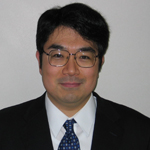
Symposium Supporters
2024 MRS Spring Meeting & Exhibit
The 2024 MRS Spring Meeting & Exhibit will be held April 22-26, 2024 in Seattle, Washington. Meeting venues include the Summit, the Seattle Convention Center's brand new addition, as well as the Hyatt Regency Seattle.
The virtual portion of the Meeting is May 7-9, 2024.
The 2024 MRS Spring Meeting is the key forum to present research to an interdisciplinary and international audience. It provides a window on the future of materials science, and offers an opportunity for researchers—from students and postdoctoral fellows, to Nobel and Kavli Prize Laureates—to exchange technical information and network with colleagues.
2024 Spring Meeting Highlights
The Materials Research Society's 2024 Spring Meeting was a whirlwind of innovation and collaboration. Researchers from across the globe converged to tackle the challenges of tomorrow – from AI's role in materials design, to the latest and greatest in solar power, MRS TV was there to capture all of the brightest ideas at this Spring's meeting. International collaborations and diverse perspectives yielded thought provoking discussions and meaningful connections. We'll see you again in Boston this Fall for another amazing meeting, but in the meantime, you can relive all of the Spring's highlights with MRS TV!
Symposium Topics
EL01—Surfaces and Interfaces in Electronics and Photonics
EL02—Towards Atomically Precise Colloidal Materials for Conventional and Quantum Optoelectronics
EL04—Wide and Ultra-Wide Bandgap Materials, Devices and Applications
EL05—Two-Dimensional (2D) Materials and Heterostructures—Large-Scale Growth and Device Integration
EL06—Complex Oxide Epitaxial Thin Films—From Synthesis to Microelectronics
EL07—Emerging Ferroic Materials—Synthesis, Properties and Applications
EL08—Plasmonics and Metasurfaces—Design, Materials and Applications
EN01—Application Targets for Next-Generation Photovoltaics
EN02—Cutting-Edge Materials Design Toward Advanced Energy Harvesting—From Modeling to Manufacturing
EN03—Sustainability of Emerging Photovoltaics
EN04—Beyond 20% Efficiencies with Organic Solar Cell Devices
EN05—Advances in Material, Catalyst and Device Design for Scalable Solar Fuel Production
EN06—Make Energy Materials Sustainable Again
EN07—Thermal Transport and Energy Conversion
EN08—Advancements in Thermoelectric Materials, Module Technology and Applications
EN09—Nanostructured Electrocatalysts for Energy Applications
EN10—Novel Approaches to Synthesize and Characterize Stable Halide Perovskites and their Devices
EN11—Emerging Inorganic Semiconductors for Solar Energy and Solar Fuels
ES01—Next-Generation EV Battery Materials—Bridging Academic, Government and Industry Research
ES02—Operando Characterization of Energy Storage Materials
ES04—Metal Anodes in Rechargeable Batteries—Electrolyte, Interface and Mechanism
ES05—Materials Challenges for Flow-based Energy Conversion and Storage
ES06—Sulfur and Sulfide Chemistry in High Performance Electrochemical Energy Storage
QT01—Ultrafast Light-Matter Interactions in Quantum Materials
QT02—Low-Dimensional Magnetic Quantum Materials
QT03—Physics of 2D Halide and Chalcogenides Semiconductors
QT04—Superconducting Materials
QT05—Advances in Detection Methods for Emergent Phases in Quantum Materials
QT06—Quantum Phenomena in Oxides—Synthesis, Characterization and Automation
QT07—3D Topological Semimetals—From Fundamentals to Applications
SB01—Bioresponsive Nanotheranostics
SB02—Charge Carrier Transport in Organic and Organic-Inorganic Hybrid Materials
SB04—Innovative Device and Characterization Concepts for Organic Electronics
SB05—Materials and Systems for Fully Implantable Organ Interfaces
SB06—Biohybrid Materials and Devices for Sensing, Robotics, Energy and Biomedicine
SB07—Lipid Materials—Theory, Fundamentals and Applications
SB08—Advanced Biomaterials and Bioelectronics for Neural Interfacing
SB09—Bioelectricity and Recapitulation of 3D Environment in Microbial and Tissue Engineering
SB10—Bioinspired Organic Materials and Devices for Sensing and Computing
Meeting Chairs
-

University of Illinois at Urbana-Champaign
-

University of Pretoria
-

Forschungszentrum Jülich GmbH
-

Johannes Kepler Universität
-

National Institute for Materials Science

MRS is an incredible community of scholars, innovators, and engineers driven to have a positive impact on the world through new materials. Being an MRS Member gives me access to forefront research spanning materials synthesis, characterization, and applications. The Spring and Fall MRS conferences are among my favorite annual meetings to connect with the community, and the monthly MRS Bulletin is a great way to stay informed about emerging topics in the interim. The MRS community has provided me with the support, inspiration, and resources to accomplish frontier science throughout my career, and I'm grateful to be an MRS Member!
Jennifer A. Dionne
Stanford University
Stay Connected to MRS Journals!





















